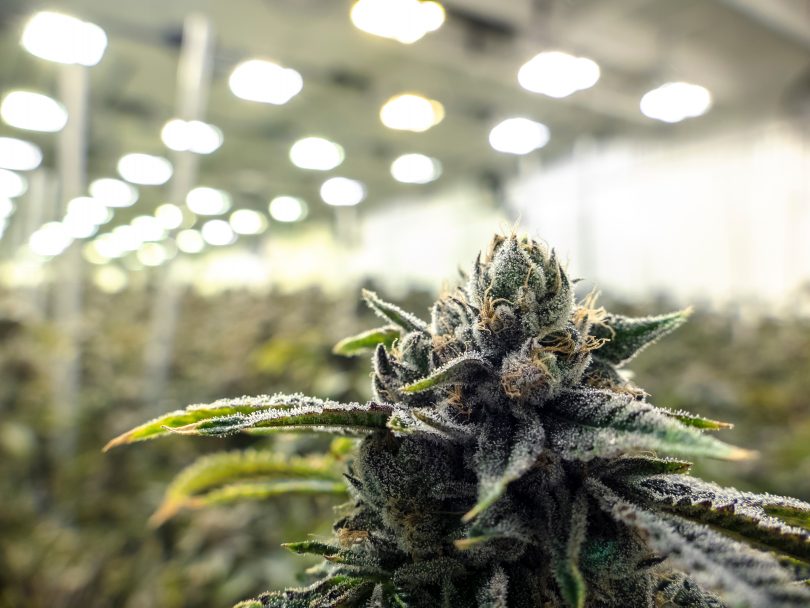The European medical cannabis market is a tough nut to crack for Canadian cannabis firms who face a more stringent regulatory regime than at home.
Aphria’s shares rose by more than 10% after it became the latest Canadian Licensed Producer (LP) to secure European Union Good Manufacturing Practice (EU-GMP) clearance for two of its domestic production facilities.
However, fellow Canadian LP Vancouver-based Zenabis saw its shares plummet after sustaining an EU-GMP setback, last month. The success of Aphria brings the total number of Canadian facilities with EU-GMP approval to a little over a dozen – which isn’t many, alongside its hundreds of domestic cultivation facilities.
Click here or use the sign-up form below to subscribe to the CBD Business Weekly Newsletter.
$11 Billion German Market
Aphria says the approval opens up a medical cannabis market with a potential worth of billions of dollars. It will initially turn its focus to the German medical cannabis market which is currently worth around $100 million and set to be worth $11 billion by 2028.
Across all industries manufacturers aim to attain various internationally recognised standards, such as ISO and IEC. These help re-assure regulators and customers, and this is also the case in pharmaceutical space.
The U.S. drugs industry operates under Current Good Manufacturing Process (CGMP) regime which is based on five Ps; people, premises, processes, products and procedures. In their home market the Canadian LPs must comply with Health Canada’s Good Production Practices (GPP) standard.
However, these are both considered a lower level of quality assurance than EU-GMP, with its quantum focus on record keeping, operational standardisation and repetitive checking.
Supply Chain Traceability
It is similar in many ways to CGMP but ratchets-up with more robust measures around contamination control and supply chain traceability, amongst others. With its forensic rigor, EU-GMP is widely recognized as the Gold Standard of all ‘good manufacturing’ processes and securing the European standard is the equivalent to securing a global exporting passport.
Businesses looking to secure EU-GMP will initially need a gap assessment to determine what has to change to deliver alignment. Many undertake mock inspections before calling in the EU assessors for the final approval process.
Your Complete Guide to EU GMP-Certified CBD Isolate and Distillate (European Market)
Zenabis ‘Critical’ Failure
The difficulties in achieving EU-GMP were outlined in a no-hold-barred report by the Maltese authorities on an application from Zenabis for an EU-GMP. In November, last year, the Maltese regulators published a synopsis of their work assessing an application by Zenabis for EU-GMP compliance at facility in Delta, British Columbia.
The report says it found the absence of a ‘correctly implemented pharmaceutical quality system’, which was described as ‘critical ‘and 29 other findings, nine of which were ‘major’. While the company said it would initiate all the ‘corrective and preventive actions’ this has failed materialise, reports BNN Bloomberg.
This rejection will impact on the bottom line as Zenabis had announced plans to supply medical cannabis to a chain of 15 Maltese pharmacies, and up to 6,000 kilograms of dried cannabis annually to a second European business. Zenabis told BNN Bloomberg that is now ‘focused’ on achieving an EU-GMP certification for a second operation in New Brunswick, where it is licenced to produce over 46,000 kilograms of cannabis.
Euro-wide Free Trade
Only a handful of Canadian cannabis companies have secured EU-GMP. They include; Tilray, Cronos Group, Canopy Growth and Aurora Cannabis. Alberta-based Aurora says it intends to seek and achieve such certification for all its sites.
Most Canadian companies are pursuing EU-GMP ‘as it’s already been established for medicinal products’, says Karina Lahnakoski, vice president of quality and regulatory at Toronto consultancy Cannabis Compliance.
The EU-GMP is run under the auspices of the European Medicines Agency and sets the standard for all medicines in the 28 member states. Once an EU-GMP is secured in one country the rules of the Single Market mean product from that facility can be freely traded across all member states.
For non-European manufactures looking to enter the EU they need to secure approval from the regulators in the country to which their imports are destined. Hence, the inspection of the Zenabis Canadian facility by regulators from Malta, where the company has a foothold with plans for an extraction facility.
Non-Compliance Concerns
However, the EU has mutual recognition agreements with many countries and, in such a case, the assessment can be undertaken by the manufacturers’ domestic regulators.
After inspecting a manufacturing site authorities either issue an EU-GMP certificate or a non-compliance statement. These are entered on to the EudraGMP database, which is a publicly accessible platform containing manufacturing and import authorizations, GMP certificates and non-compliance statements.
The EU-GMP authorization process was outlined in a recent press release by German-based business AMP German Cannabis Group which trades on Canadian Securities Exchange. Its business model is to source EU-GMP medical cannabis from Canadian LPs to supply the German market.
£58 Billion Euro Market
It says that in order to achieve EU-GMP each Canadian LP it identifies as being a potential partner will need to undergo an ‘EU-GMP gap analysis and audit by its German consultants’.
Once the Canadian LP passes an audit, AMP Germany says it will arrange for an EU-GMP inspection and certification by German authorities. The attraction of the European market is there for all to see.
The European cannabis Report from Prohibition Partners says that the first-world continent with over 742 million people, and a total healthcare spend of €2.3 trillion, will be the largest global medical cannabis market.
Over €500m has been invested in European cannabis businesses over the last year and by 2028 the medical cannabis market will be worth £58 billion, says the report.
Interested in EU GMP CBD extracts? Subscribe to the CBD Business Weekly Newsletter.
